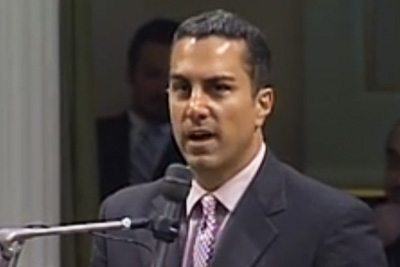California Bill Would Change Reporting Requirements for College Sexual Assaults
As the California legislature reconvened this week, Assembly member Mike Gatto introduced AB 1433, which would amend the state education code to require that colleges report certain violent crimes, including sexual assaults, that occur on or near campus to local law enforcement agencies.

Read more of our articles on consent and sexual assault on U.S. college campuses here.
As the California legislature reconvened this week, Assembly member Mike Gatto (D-Los Angeles) introduced AB 1433, which would amend the state education code to require that colleges report certain violent crimes, including sexual assaults, that occur on or near campus to local law enforcement agencies.
The bill includes an exemption for survivors who do not wish their assault to be reported to law enforcement and who wish to remain anonymous.
The legislation comes as sexual assault survivors on college campuses across the country have become increasingly vocal about the lack of support they have received from their institutions. As Rewire previously reported, the mishandling of sexual assaults is happening at large public universities and small private colleges alike, and victims are facing similar barriers to the legal system and to health-care and counseling services. Meanwhile, their assailants are facing few to no ramifications for their crimes.
In 2010, the U.S. Department of Justice, whose statistics show that one in four women attending college will be the victim of sexual assault before graduation, launched an initiative to raise awareness about the pervasiveness of sexual assault on college campuses.
And in 2011, the Department of Education’s Office for Civil Rights (OCR) published a letter stating that “sexual harassment of students, including sexual violence, interferes with students’ right to receive an education free from discrimination.” The letter goes on to note that if schools do not comply with laws regarding the reporting of “criminal conduct,” including sexual violence, that constitutes a violation of a student’s civil rights under Title IX.
Survivors and their advocates have also taken action. In early 2013, students at several colleges—including the University of Southern California, Dartmouth College, Swarthmore College, and the University of California, Berkeley—filed civil rights complaints with the Department of Education against their respective colleges for failure to properly respond to allegations of sexual assault.
Gatto told Rewire that he and his staff have been reading about high-profile incidents in which colleges did not act promptly or sweot the problem of sexual assault on campus under the rug. “I was horrified when I read these stories,” said Gatto.
One such story is that of Sofie Karasek, a junior at UC Berkeley, who told Rewire that in February 2012 she was sexually assaulted by a fellow student. She later found out he had assaulted other students as well. In April of that year, four survivors, including Karasek, reported the incidents to the school’s administration. “They seemed concerned at first,” said Karasek. “But they didn’t seem like they had authority to hold him accountable.”
Karasek said that after reporting her incident she didn’t hear anything back from the administration until she reached out to them again in November, at which point she learned that the administration had found the student in violation of the school’s Code of Student Conduct, though he was still allowed to graduate early. She says she is jaded about how the university handled her sexual assault case. Furthermore, “I wanted to the university to be held accountable,” she said.
Karasek and the other survivors from her school were part of the group to file claims about civil rights violations with the Department of Education—claims that are still working their way through the system. In the meantime, Karasek says someone from Assembly member Gatto’s office contacted her to get her input on the new legislation.
“We gathered different public accounts, we talked with victims of these types of crimes, we talked with law enforcement, and we looked at existing law,” said Gatto. He found that the only legislation that regulates how colleges deal with violent crime on campus is the Clery Act, which requires schools to give statistics of crime on campus in a yearly report. “Reporting a statistic does nothing to solve a crime. Some schools were manipulating the statistics. We felt that involving professional law enforcement would probably be the best way to solve the problem,” he said.
Gatto said that based on Karasek’s feedback, he included the exemption for survivors who don’t want their stories reported to law enforcement. “There are times when someone might not trust police, someone might not want to undergo that ordeal, and many other reasons why someone wouldn’t want to involved law enforcement,” he said. “Listening to victims’ rights advocates made the law better.”
Karasek said the bill is just one step toward helping victims of sexual assault on campus. “Myself and other survivors are currently reaching out to compile a list of the best recommendations to address the needs of our community,” she said. Among those recommendations: more Title IX coordinators, more counselors, longer hours for health-care centers on college campuses, and rape kits provided by universities.
Karasek says she hopes AB 1433 will start a nationwide trend of similar legislation. With state laws, “we will be able to see what the best practices are,” said Karasek.”If there were federal legislation I hope that it would build upon work that has been done by each of the states, and be driven by survivor action to be able to fix this in the best possible way.”

